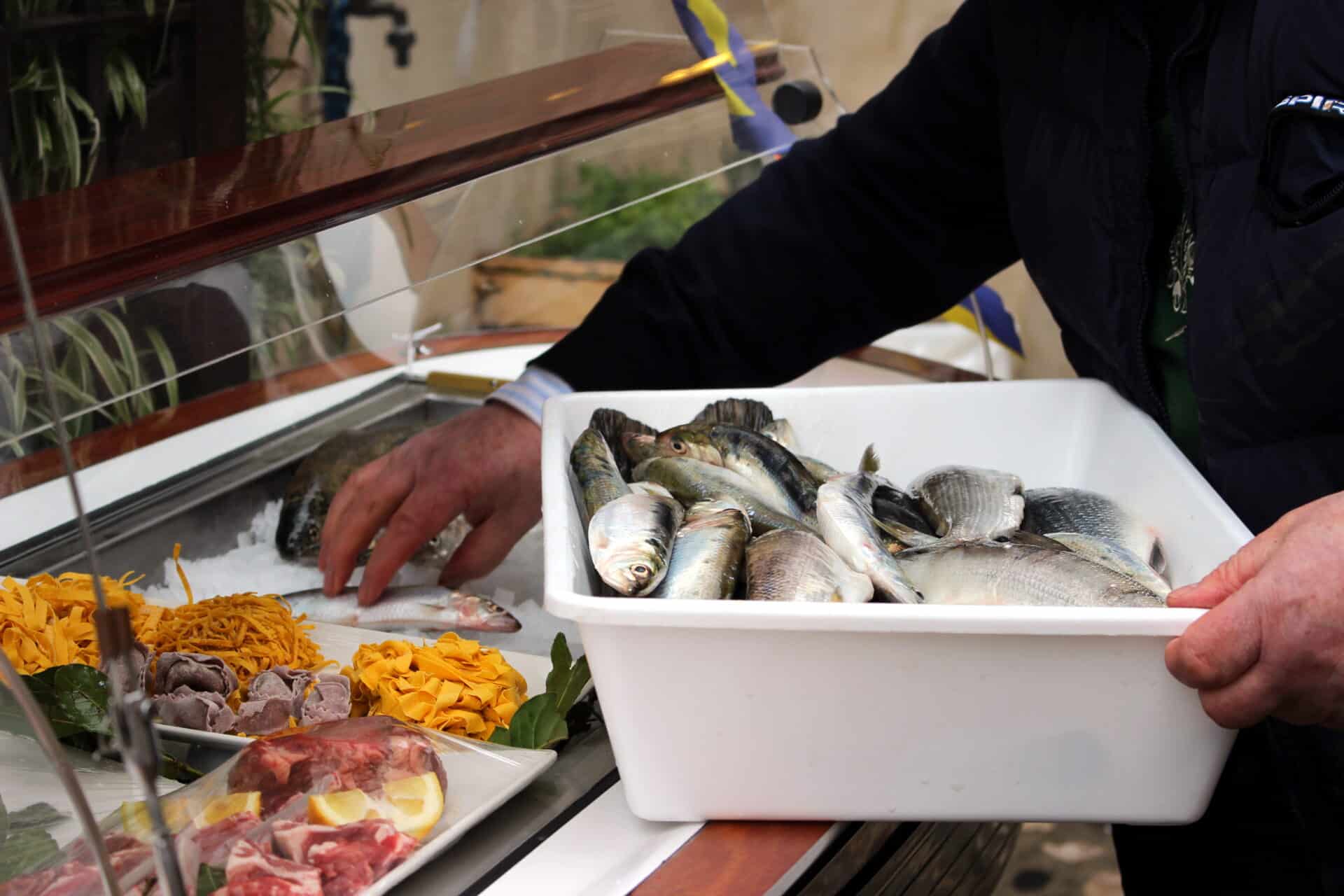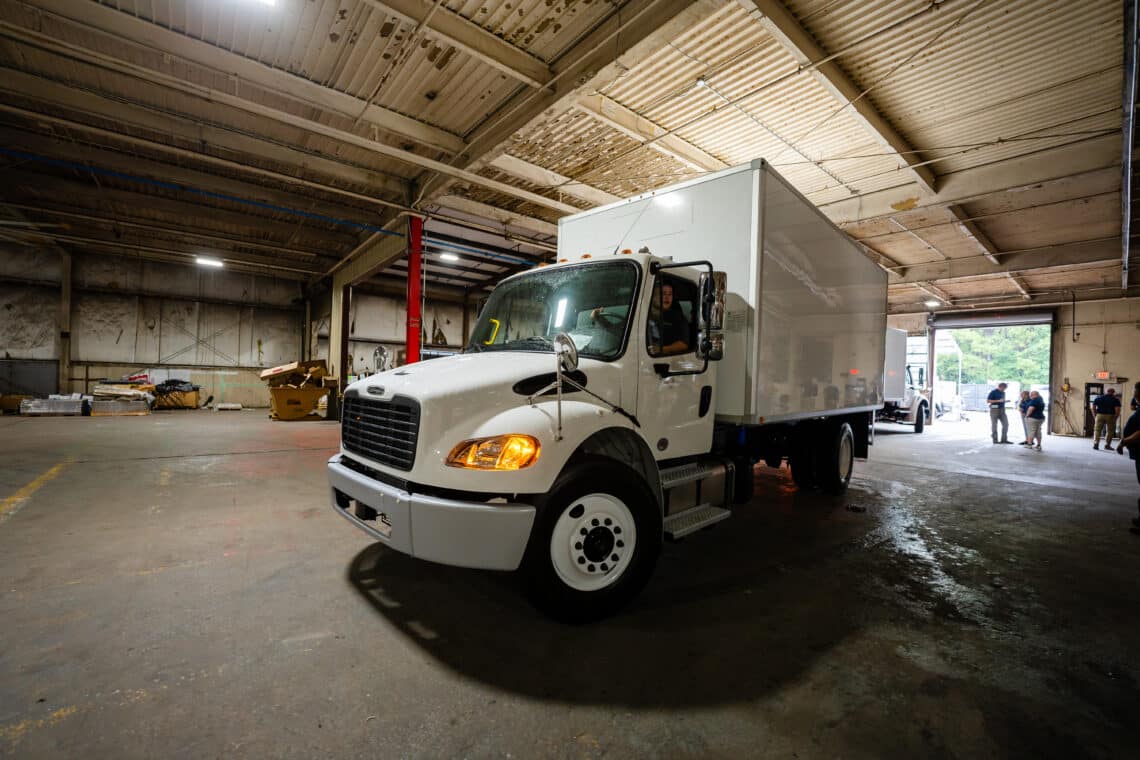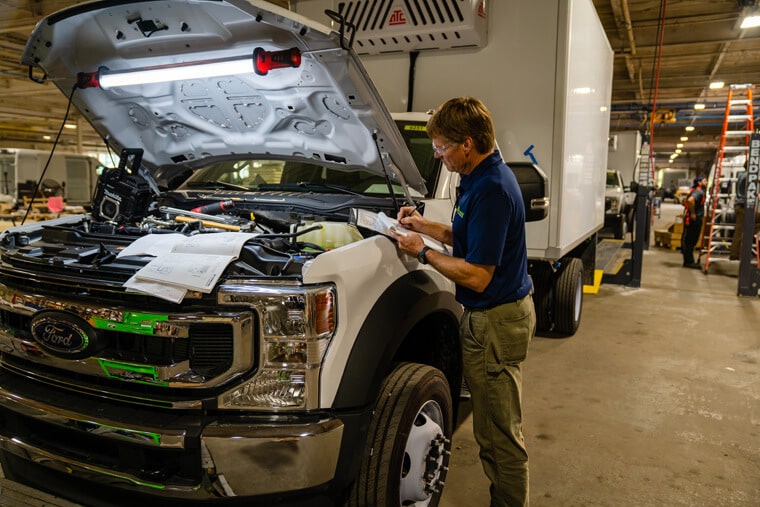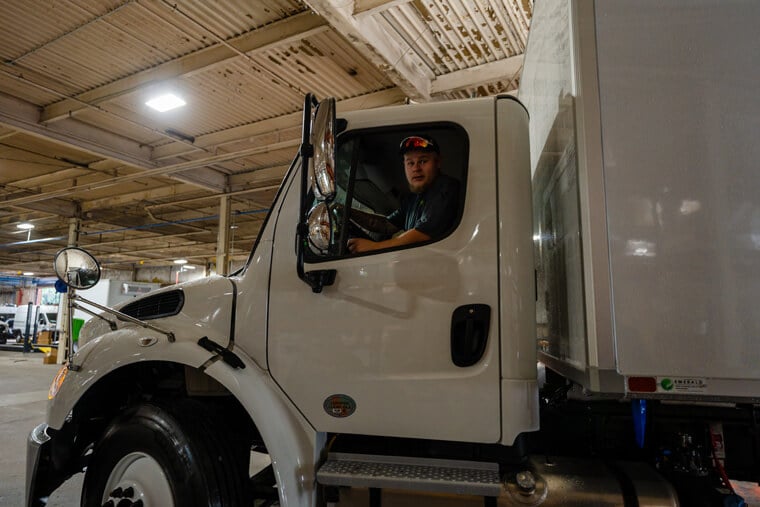
The Importance of Temperature Control: Ensuring Freshness in Seafood Transport
emerald-admin | March 22nd, 2024
Shipping seafood presents unique challenges, especially when maintaining freshness and quality during transportation. At Emerald Transportation Solutions, we understand the critical role temperature control plays in preserving the integrity of perishable goods like seafood. Whether you are looking for a reefer van for sale or a freezer truck for sale, we have you covered with a wide-ranging inventory of quality refrigerated vehicles.
Let’s look into why temperature control is of premier importance for seafood transport and how the temperature-controlled truck and van options we offer play a pivotal role in this process.
Preserving Seafood Freshness
Maintaining the freshness of seafood is not merely a matter of taste; it’s a fundamental aspect of food safety. Seafood is highly perishable and prone to bacterial growth, posing significant health risks if not handled properly. When it comes to the delivery of fresh seafood with a reefer truck or van, effective temperature control is the most reliable method to mitigate bacterial growth, delay spoilage, and ensure optimum seafood quality throughout its journey.
Understanding Seafood Spoilage
Seafood spoilage primarily occurs due to bacterial growth, enzymatic activity, and exposure to oxygen. Bacteria on the surface and within the flesh of seafood accelerate spoilage, leading to unpleasant odors and flavors. Enzymes continue to work post-harvest, breaking down the flesh and compromising its quality. Temperature control is crucial to slowing these processes and preserving the freshness of seafood.
The Role of Refrigerated Trucks: Ensuring Optimal Conditions
Refrigerated trucks and vans are indispensable assets in the transportation of fresh and frozen seafood. These specialized vehicles are equipped with adjustable temperature settings, ensuring precise control over the shipping environment. High-quality insulation and consistent air circulation in a refrigerated, temperature-controlled truck or van maintain uniform temperatures throughout the cargo space, preventing hotspots and minimizing the risk of spoilage.
Modern refrigerated trucks feature sophisticated temperature control systems, accommodating diverse seafood preservation needs. From tuna to scallops to wild-caught salmon, operators can modify temperature settings accordingly. Enhanced insulation and sealing mechanisms ensure stability, even in adverse conditions.
Robust insulation minimizes heat transfer, combating external influences such as temperature shifts and sunlight. Advanced seals tightly secure cargo compartments, preventing warm intrusion. With precise temperature control and highly effective insulation, refrigerated trucks offer a secure environment for safe seafood transport from harvest to market.
Learn About Our Extensive Refrigerated Vehicle Inventory
At Emerald Transportation Solutions, we offer a comprehensive fleet of refrigerated trucks and vans tailored to meet your seafood transportation requirements. Our vehicles are equipped with state-of-the-art temperature control systems, ensuring that your precious cargo arrives fresh and intact.
Ensure the freshness and safety of your seafood shipments with Emerald Transportation Solutions. Give us a call today at 678.831.9975 or use our contact form to learn more about our refrigerated and insulated truck and van inventory.
Related Articles
Contact Us
Feel Free To Contact Us If You Have Any Questions
What does under DOT mean?
Questions regarding DOT requirements come up often. 10,000 lbs GVW (gross vehicle weight) and over are commercial vehicles that fall under the Department of Transportation regulatory requirements.
What is the difference between GVW and payload?
GVW or Gross Vehicle Weight is the entire weight of the vehicle including the payload. The payload weight represents the amount of cargo you are hauling.
What is a self-powered unit and a vehicle-powered unit?
A self-powered unit has its own fuel source and will run independent of the truck. This is the heaviest and most expensive option. While vehicle-powered units run off the engine via a compressor mounted on the engine. These are less expensive and lighter in weight but you must run the truck or plug the electric standby into shore power.
What does K-factor mean and why is that important?
K-factor is a term that stands for the overall insulating value of the container (truck body). Quite simply the lower the K-factor the better the truck body will be able to maintain a given temperature and require less energy to do so.
How much lighter is a Poly Van vs a US spec body?
Poly Van bodies are very light. On average we estimate we are 75-150 lbs per foot lighter than a traditional sheet and post foamed in place body. These weight savings translates to less fuel burn and less CO2 emissions, along with added payload, the most important benefit.






